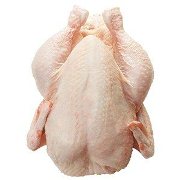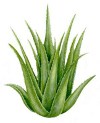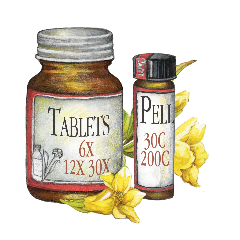The most common surgeries performed on dogs and cats are neuterings, which include spayings and castrations, and dental procedures. For any other surgeries, we urge you to get a second opinion from a holistic veterinarian if you haven’t already done so.
opinion from a holistic veterinarian if you haven’t already done so.
In some cases, surgery is the best option. In others, it can cause irreversible harm. For example, cats who have been raised on a commercial diet often develop thyroid problems. If your veterinarian removes the thyroid, a procedure done frequently, a holistic vet cannot attempt later to fix the problem with proper nutrition and supplements. In other words, there will be no way to heal the thyroid gland because it won’t be there. And your pet will have to deal with the problems associated with having no thyroid gland for the rest of its life.
For more information on spaying or castration, see the Neutering section. For more information on dental problems, see the Dental section. For general tips on preparing for surgery and post-operative care, read on.
Herbal and Naturopathic Help
 If you haven’t done so already, now is the time to switch your pet to a natural, well-balanced, raw meat diet. See the Diet section for more information. Good nutrition, exercise, and exposure to natural light and fresh air are the best things you can do to prepare your pet for surgery. The better health your dog or cat is in, the easier recovery will be.
If you haven’t done so already, now is the time to switch your pet to a natural, well-balanced, raw meat diet. See the Diet section for more information. Good nutrition, exercise, and exposure to natural light and fresh air are the best things you can do to prepare your pet for surgery. The better health your dog or cat is in, the easier recovery will be.
Before Surgery:
Starting a few weeks before surgery, or at whatever time you read this, give your dog or cat extra vitamins C and E, and add a little fish oil to your pet’s food, mostly for the vitamin A. Within a week of surgery, don’t give your pet garlic as it thins the blood.
The day before surgery, don’t feed your pet anything after 6:00 PM. You can give water up until bedtime.
After Surgery:
After surgery, wait two to three hours before attempting to give food. Encourage drinking water, though, or ice cubes. Your pet may be slightly dehydrated and will also be clearing the anesthesia from its system. Don’t force your pet to eat. When dogs and cats aren’t feeling well, they will naturally fast. See the Appetite Loss section for more information. Some holistic veterinarians recommend Dr. Bach’s Rescue Formula to help ease recovery of surgeries and traumatic events.
There are a number of rinses that holistic veterinarians recommend for keeping the wound and sutures site clean.  A strong infusion of calendula is often used. Calendula helps with healing and it inhibits the growth of bacteria. Tea tree oil has antiseptic and antibacterial properties, but be very cautious about using tea tree oil on your pets. Some essential oils can be particularly harmful to cats because the oils aren’t metabolized in the cat’s system. This means the essential oils can accumulate internally and become toxic. Consult a holistic veterinarian before using essential oils such as tea tree and lavender. Aloe vera is also a tried and true natural gel that helps speed up topical healing. We recommend povidone-iodine (Betadine) for keeping the surgical area sterile. It may not be considered herbal, but holistic care isn’t necessarily about keeping everything herbal.
A strong infusion of calendula is often used. Calendula helps with healing and it inhibits the growth of bacteria. Tea tree oil has antiseptic and antibacterial properties, but be very cautious about using tea tree oil on your pets. Some essential oils can be particularly harmful to cats because the oils aren’t metabolized in the cat’s system. This means the essential oils can accumulate internally and become toxic. Consult a holistic veterinarian before using essential oils such as tea tree and lavender. Aloe vera is also a tried and true natural gel that helps speed up topical healing. We recommend povidone-iodine (Betadine) for keeping the surgical area sterile. It may not be considered herbal, but holistic care isn’t necessarily about keeping everything herbal.
Homeopathy
 For nausea or if your pet is overly groggy and slow to wake up after surgery, give one or two pellets of Phosphorus 30c. Don’t give food for at least fifteen minutes.
For nausea or if your pet is overly groggy and slow to wake up after surgery, give one or two pellets of Phosphorus 30c. Don’t give food for at least fifteen minutes.
If your pet seems restless and is in much discomfort after surgery, give one or two pellets of Arnica 30c every four hours for a day or two. Arnica is also used for people before surgery to help prevent bruising.
For redness or pus or fluid discharge around the sutures, give one pellet of Apis mellifica 6c every four hours. If you see no improvement after twenty four hours, consult a veterinarian.